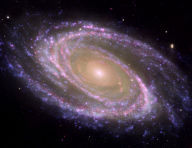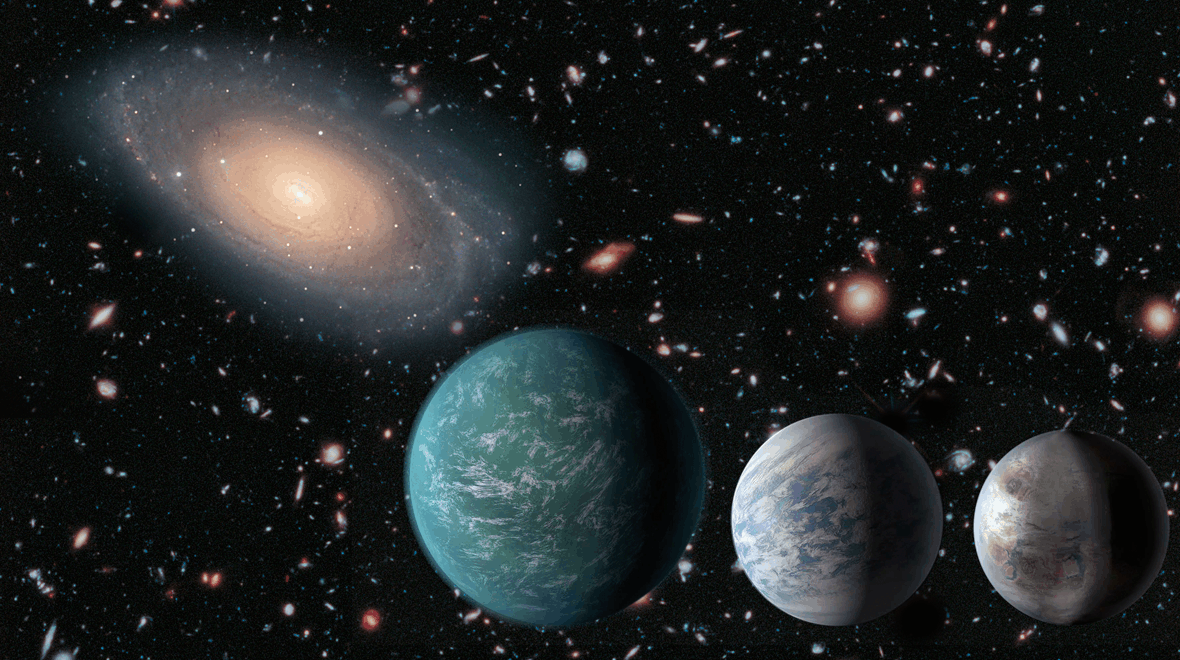
Research
What happened at the beginning of the Universe?
What is Dark Matter? What is Dark Energy?
What is the structure of our own Galaxy?
Can we use Machine Learning and Statistics to answer these questions?
What is Machine Learning really learning?
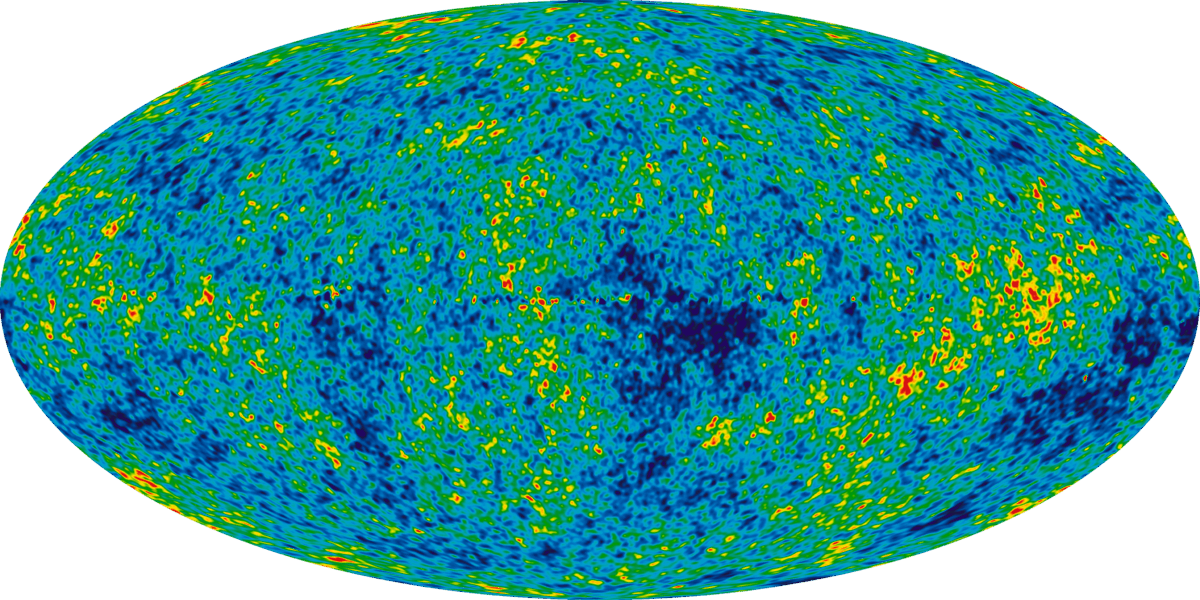
Cosmic Microwave Background
The cosmic microwave background is electromagnetic radiation as a remnant from an early stage of the universe after the Big Bang. The photons travel to us from the surface of last scattering (primary anisotropies) through all the intervening materials of the Universe (secondary anisotropies). Our group plans, builds and analyses the CMB data collected by the ground and space telescopes such as Actacama Cosmology Telescope, the Planck Satellite, Simons Observatory and WMAP.
A few selected publications are here:
Scale-dependent galaxy bias, CMB lensing-galaxy cross-correlation, and neutrino masses, Giusarma et al. 2018, submitted
The Detection of Imprint of Filaments on CMB lensing, Siyu He et al. 2018, Nature Astronomy.
Evidence for the kinematic Sunyaev-Zeľdovich effect with ACTPol and velocity reconstruction from BOSS, Schaan et al. 2016, Physics Review D
Correlation of CMB with large-scale structure: I. ISW Tomography and Cosmological Implications, Ho, Hirata, et al., 2008, Physics Review D
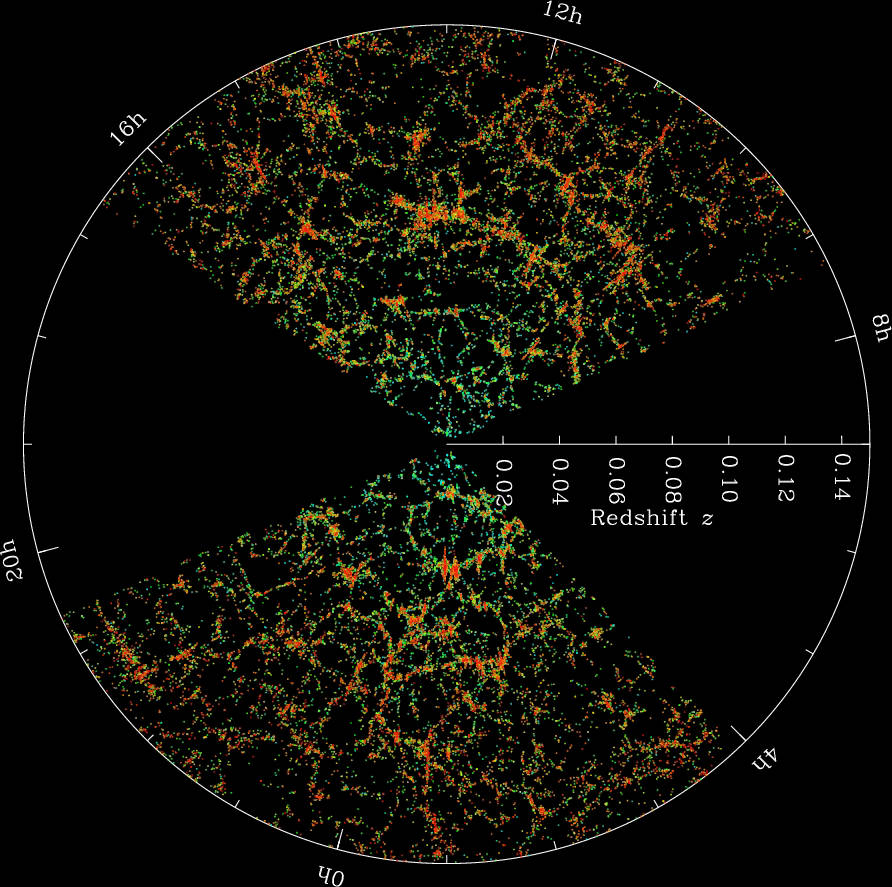
Large Scale Structure
The Universe exhibits structure over a wide range of physical scales – from satellites in orbit around a planet through to the galaxy clusters, filaments, sheets and voids that span significant fractions of the observable Universe. These latter are commonly referred to as the ‘large-scale structure’ of the Universe, and are clearly observed in galaxy surveys such as those in Sloan Digital Sky Survey. Our group plans, builds and analyzes data from astronomical surveys such as Euclid, LSST, SDSS, WFIRST, and often jointly with other cosmological probes such as the CMB to gain insights of the nature of our Universe, or nature of the physical laws that governs us.
A few selected publications are here:
Testing gravity on large scales by combining weak lensing with galaxy clustering using CFHTLenS and BOSS CMASS. Alam et al. 2017
Constraining Gravity at the Largest Scales through CMB Lensing and Galaxy Velocities. Pullen et al., 2016
Testing deviations from ΛCDM with growth rate measurements from 6 Large Scale Structure Surveys at z=0.06 to 1. Alam et al., 2015
The clustering of galaxies in the SDSS-III Baryon Oscillation Spectroscopic Survey: Baryon Acoustic Oscillations in the Data Release 10 and 11 galaxy samples. BOSS collaboration, 2014
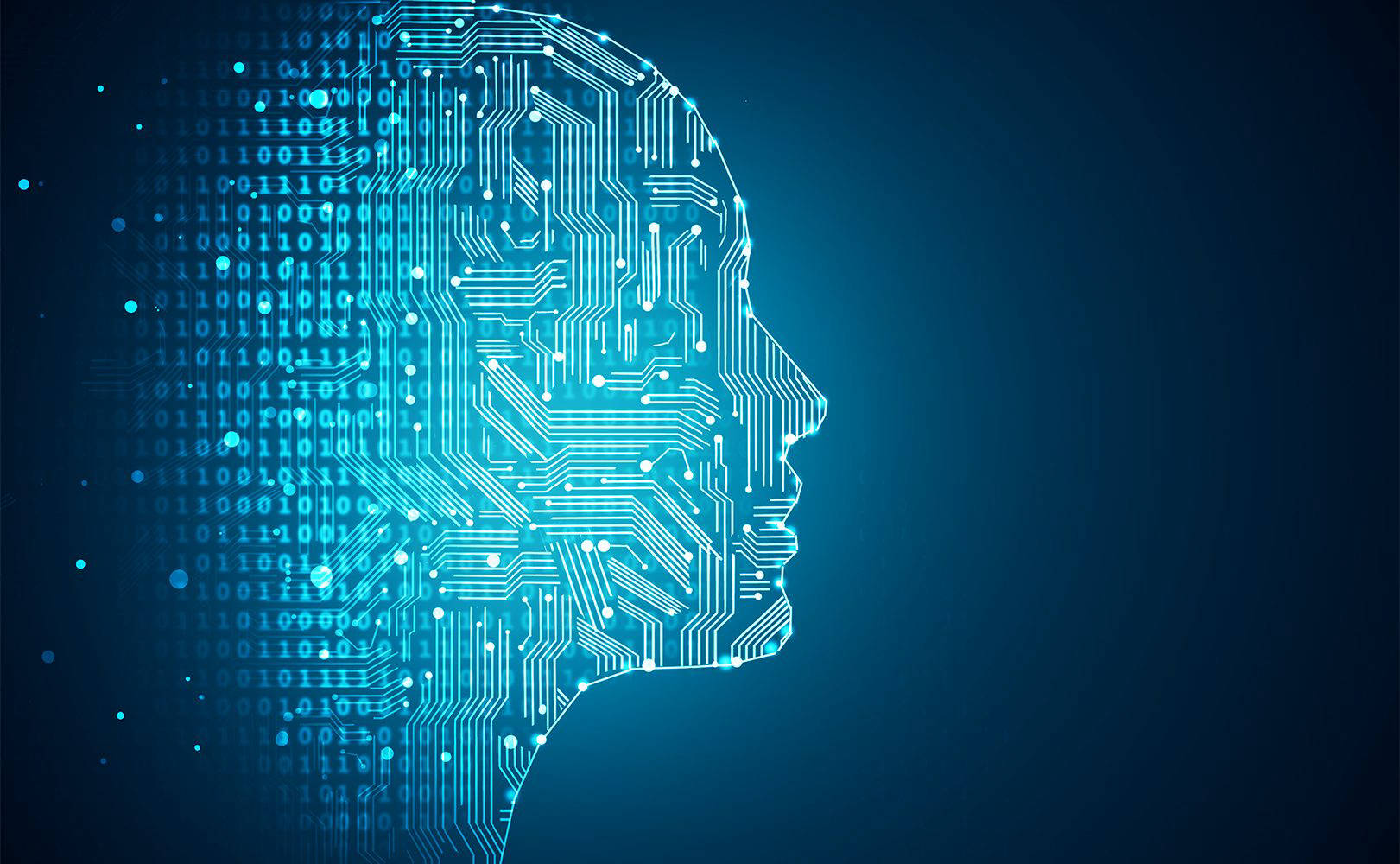
Machine Learning for Science
Faced with a fundamental shift in both complexity and volume of the data, scientists have been struggling in finding ways to automate both analyses, and possibly the interpretation of the datasets. Machine Learning is a rapidly evolving field that has proven to be extremely efficient in solving challenges in multiple domains including signal processing, vision, self-driving, gaming, health and robotics. One may ask whether we can leverage the advances in machine learning and statistics for science. Our group specializes in applying and developing novel methods in machine learning on astrophysical challenges.
A few selected publications are here:
From Dark Matter to Galaxies with Convolutional Networks: Zhang et al., submitted, Arxiv:1902.05965
Learning to Predict Cosmological Structure Formation: He et al., submitted, Arxiv:1811.06533
Analysis of Cosmic Microwave Background with Deep Learning, Siyu He, Siamak Ravanbakhsh, Shirley Ho, ICLR 2018
Detecting damped Ly α absorbers with Gaussian processes. Garnett et al. 2017, MNRAS 2017
Estimating Cosmological Parameters from the Dark Matter Distribution, Ravanbakhsh et al., Proceedings of The 33rd International Conference on Machine Learning, volume 48, of JMLR: W&CP, 2016.
Optimal Ridge Detection using Coverage Risk, Chen et al., 2015, In Advances in Neural Information Processing Systems, pp. 316-324. 2015
Fast function to function regression, Oliva et al., 2015, AIStats, 2015

Statistics meets Astrophysics
Astronomy and astrophysics are frequently statistical in nature. The objects under study are inaccessible to direct manipulation in the laboratory, so the astronomer is restricted to observing a few external characteristics and inferring underlying properties and physics. With the proliferation of survey mega-datasets and the need to link complicated data to nonlinear astrophysical models, statistical methods have become an indispensible toolbox for astrophysicists. Our group develops and applies new methods in statistics on astrophysical problems that sometimes do not have other alternatives.
A few selected publications are here:
Likelihood Non-Gaussianity in Large-Scale Structure Analyses. Hahn et al., 2018
Cosmic Web Reconstruction through Density Ridges: Method and Algorithm. Chen et al., 2015
Cosmic Web Reconstruction through Density Ridges: Catalogue. Chen et al., 2015
